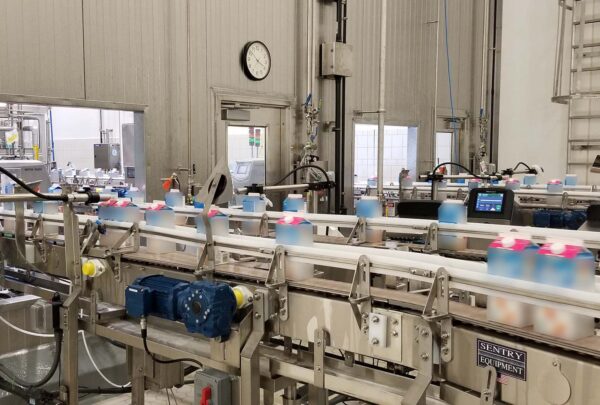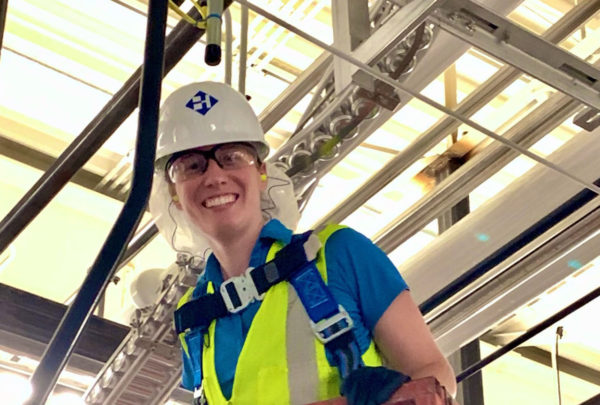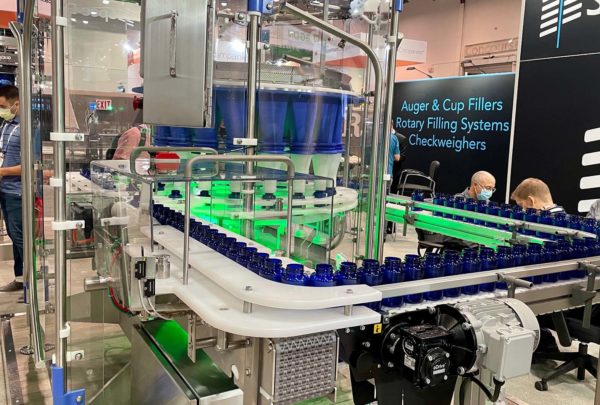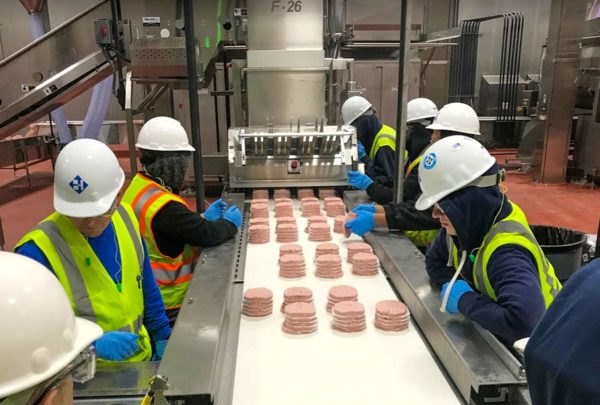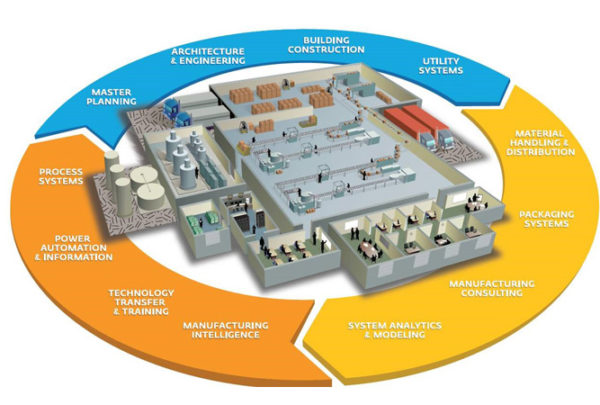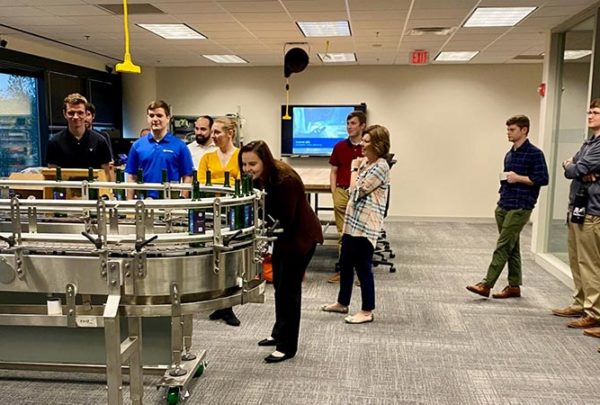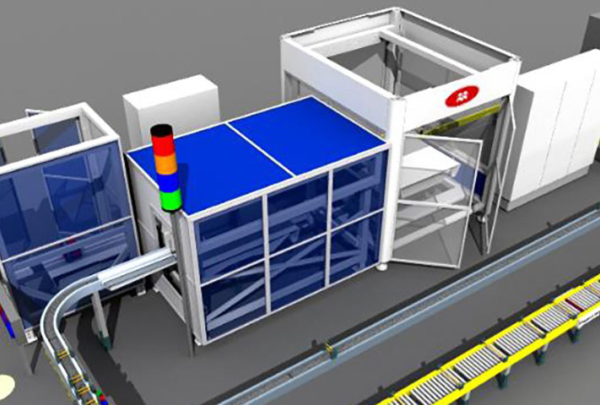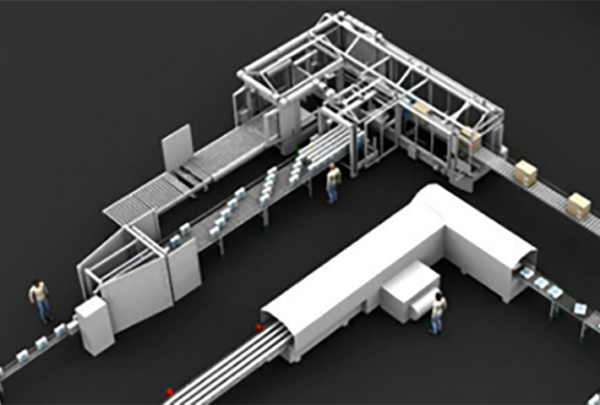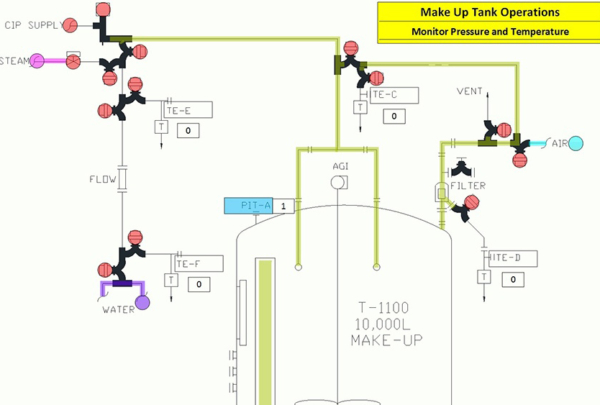A flat start-up curve can ruin your game. Demand goes unmet. Startup costs rise. And despite your best efforts to reach capacity, your startup period grows longer by the day.
Everyone’s been there, but it doesn’t have to be that way. Haskell, ranked the No. 1 Food and Beverage Contractor by Engineering News-Record (ENR) for the second consecutive year, has developed a game plan for fast startup that helped a beverage manufacturer with an aggressive 10-week startup goal reach planned capacity levels in only four weeks.
Here’s how it works: If you’re struggling with flat startup curves – or curves that look okay at first but drop off a cliff once your engineers move on to their next project – then you’ll recognize problems like these:
- Your people are geared up to go, but the machines aren’t ready or the resources aren’t there. On the other hand, maybe the line is ready, but your people aren’t.
- Change orders from contractors, last-minute changes from the controls engineer, quality control tweaks and endless other changes are stalling progress.
- Operations and maintenance staff are ready to get working but aren’t adequately trained. Or you’ve conducted training, but it’s off-target and costing too much.
Haskell has been helping companies improve their startups for more than 25 years and can ensure that you avoid the problems that plague most startups. It all comes down to five fundamentals.
1. Create a startup team that represents stakeholders.
Begin by identifying all the parties that affect your startup success. Everyone who touches the project needs a voice on your startup team – from plant engineering, operations, and maintenance to corporate engineering, quality, R&D, marketing, and business leadership. It’s the best way to prevent unwelcome surprises and setbacks.
2. Choose a quarterback who can act as a player-coach.
When selecting the leader for your startup team, look for someone who can coach everyone through the startup without doing all the work single-handedly. This is vital. You want a team player who can bring everyone together and will not go it alone. Your startup quarterback should come from within your group of stakeholders. He or she is responsible for calling the plays on the field, overseeing the entire startup, and ensuring end-to-end care of the project.
3. Build the playbook together.
Don’t expect your quarterback to create all the plays. No one person can think of everything. What’s more, buy-in from your team members is one of the most critical success factors for any startup. To accomplish this, your quarterback should gather input from everyone on the team, compile the information and present it to the whole team for feedback.
During this process, you want to define what the goal line looks like by outlining quantifiable success criteria and including them in your playbook. One of the simplest, most effective ways to do this is to use SMART goals (Specific, Measurable, Attainable, Realistic, and Time-based). Since training can make or break a startup, you also want to be sure your playbook includes a comprehensive training plan. Practicing the plays ahead of time will help prepare your team for game day.
4. Execute the plays while keeping everyone talking.
Constant communication is the key to execution. It is how you build trust and develop a nimble, responsive team that can quickly adapt to change. Your quarterback should lead a daily startup meeting to foster these winning qualities in your team, address unexpected challenges and solve issues before they become serious problems.
The startup will be a dynamic environment with constantly changing conditions. Some tests will go well and advance the schedule while others will go poorly and impede the schedule. The team will need to adjust to changing conditions to maximize utilization of resources (service techs, operators, materials) and time.
5. Keep score and celebrate every win.
What’s the best way to boost team morale? Score more points. It’s important to track your progress, celebrate milestones, and reward your people for a job well done. You’ll want to include highly visible startup scorecards on the production floor to help track progress.
Haskell worked with one client to develop three lists of goals: baseline goals, “stretch” goals and “wow” goals. With these quantifiable success criteria in place, it was easy to measure performance. Subsequently, the project met every baseline and stretch goal and even accomplished several of the “wows.” For example, operational qualification was met 40% sooner than planned, and final project objectives were met 25% sooner. The client was amazed, and the team was delighted. Haskell’s startup planning process is now a staple in the client’s project management playbook.
About the author: Keith Perkey is Haskell’s Vice President – Manufacturing Solutions. Keith has 25-plus years of experience in food, beverage, consumer, and pharmaceutical products. He has been involved with all phases of completing a capital project, from concept to post start-up optimization.
Are you ready to get started? Aim high. Follow this simple, five-step game plan, and, for more information, contact Haskell’s industry-leading Food and Beverage experts.








